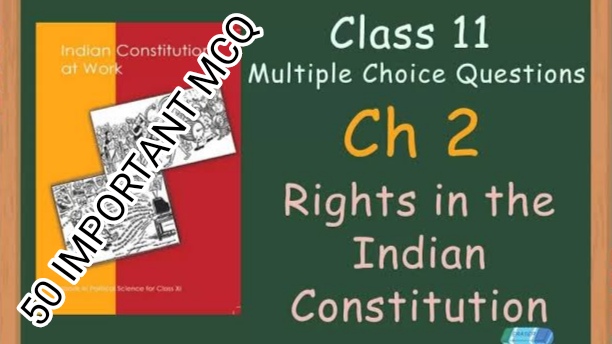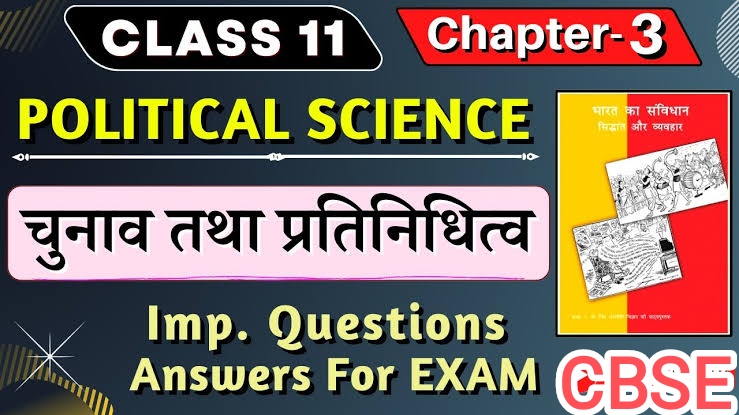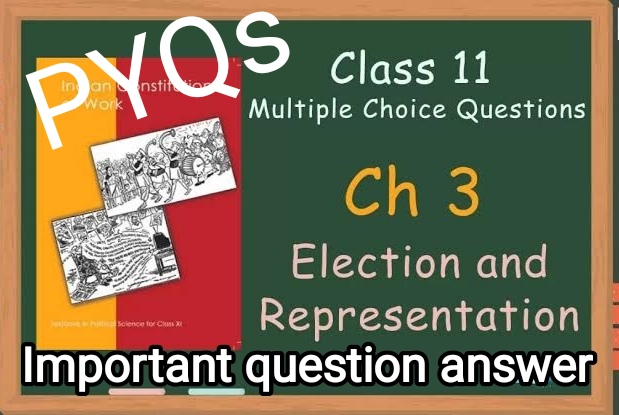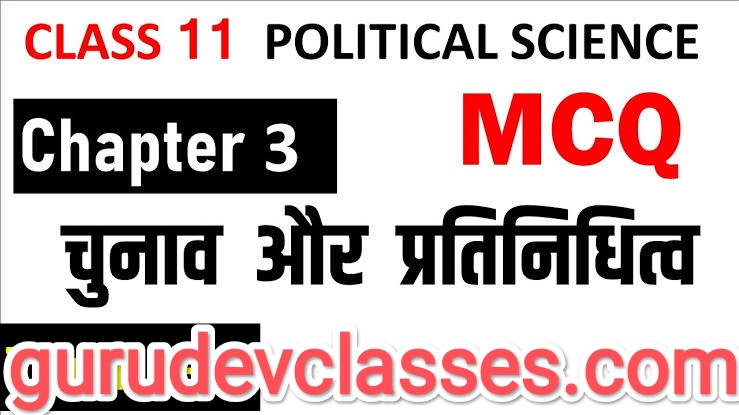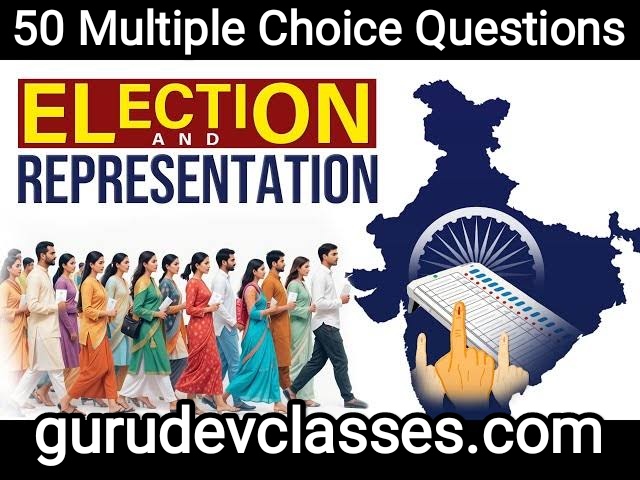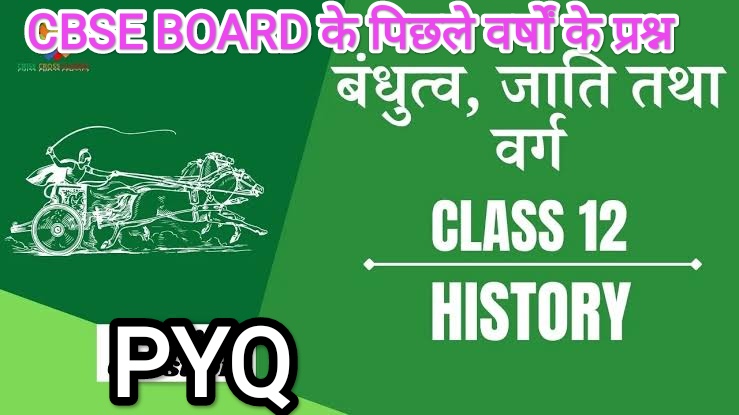Q1. Which Part of the Indian Constitution deals with Fundamental Rights?
A. Part I
B. Part II
C. Part III
D. Part IV
✅ Answer: C
Q2. How many Fundamental Rights are currently guaranteed by the Constitution?
A. 5
B. 6
C. 7
D. 8
✅ Answer: B
Q3. Which Article guarantees the Right to Equality?
A. Article 12
B. Article 14
C. Article 16
D. Article 21
✅ Answer: B
Q4. Right to Property is now a:
A. Fundamental Right
B. Directive Principle
C. Legal Right
D. Natural Right
✅ Answer: C
Q5. The Right to Constitutional Remedies is provided under:
A. Article 19
B. Article 21
C. Article 32
D. Article 15
✅ Answer: C
Q6. Who called Article 32 the “heart and soul” of the Constitution?
A. Jawaharlal Nehru
B. B.R. Ambedkar
C. Mahatma Gandhi
D. Rajendra Prasad
✅ Answer: B
Q7. Which Article abolishes untouchability?
A. Article 14
B. Article 15
C. Article 17
D. Article 18
✅ Answer: C
Q8. Which Article prohibits discrimination on grounds of religion, race, caste, sex or place of birth?
A. Article 15
B. Article 16
C. Article 17
D. Article 18
✅ Answer: A
Q9. Freedom of Speech and Expression is guaranteed under:
A. Article 19(1)(a)
B. Article 21
C. Article 22
D. Article 25
✅ Answer: A
Q10. Cultural and Educational Rights are given under:
A. Articles 19–22
B. Articles 29–30
C. Articles 25–28
D. Articles 14–18
✅ Answer: B
Q11. Which Fundamental Right protects minorities’ right to establish institutions?
A. Article 30
B. Article 29
C. Article 28
D. Article 26
✅ Answer: A
Q12. Which Article provides for the abolition of titles?
A. Article 14
B. Article 18
C. Article 17
D. Article 16
✅ Answer: B
Q13. Who can enforce Fundamental Rights?
A. Prime Minister
B. Judiciary
C. Parliament
D. Election Commission
✅ Answer: B
Q14. Article 21 guarantees:
A. Right to Freedom
B. Right to Life and Personal Liberty
C. Right to Vote
D. Right to Equality
✅ Answer: B
Q15. Freedom to form associations is a part of:
A. Right to Equality
B. Right to Freedom
C. Right against Exploitation
D. Right to Religion
✅ Answer: B
Q16. Which Right was declared a Fundamental Right in 2002?
A. Right to Property
B. Right to Privacy
C. Right to Education
D. Right to Information
✅ Answer: C
Q17. The Right to Education is guaranteed to children of age:
A. 3 to 18
B. 6 to 14
C. 5 to 16
D. 7 to 17
✅ Answer: B
Q18. Which Fundamental Right is automatically suspended during National Emergency (Article 352)?
A. Right to Equality
B. Right to Freedom
C. Right to Education
D. Right to Religion
✅ Answer: B
Q19. Which Article provides for protection in respect of conviction for offences (Double jeopardy, self-incrimination)?
A. Article 20
B. Article 21
C. Article 22
D. Article 19
✅ Answer: A
Q20. Which Article provides safeguards against arbitrary arrest and detention?
A. Article 20
B. Article 21
C. Article 22
D. Article 23
✅ Answer: C
Q21. How many types of writs are provided in Article 32?
A. 4
B. 5
C. 6
D. 7
✅ Answer: B
Q22. Which writ means “to have the body”?
A. Mandamus
B. Certiorari
C. Habeas Corpus
D. Quo Warranto
✅ Answer: C
Q23. Which writ is issued against a person holding a public office without legal authority?
A. Mandamus
B. Quo Warranto
C. Certiorari
D. Habeas Corpus
✅ Answer: B
Q24. The Right to Freedom includes how many freedoms?
A. 3
B. 4
C. 6
D. 8
✅ Answer: C
Q25. Which of these is NOT included in the Right against Exploitation?
A. Prohibition of trafficking
B. Prohibition of forced labour
C. Ban on child labour
D. Right to vote
✅ Answer: D
Q26. Right to Equality does NOT include:
A. Equality before law
B. Equal protection of law
C. Equal income for all
D. Equality of opportunity
✅ Answer: C
Q27. Which of these is a secular right?
A. Right to Vote
B. Right to Religion
C. Right to Property
D. Right to Work
✅ Answer: B
Q28. Right to Constitutional Remedies empowers citizens to:
A. Petition Parliament
B. Enforce Fundamental Rights
C. Elect the President
D. Amend the Constitution
✅ Answer: B
Q29. Directive Principles differ from Fundamental Rights in that they are:
A. Justiciable
B. Enforceable
C. Non-justiciable
D. Constitutional Duties
✅ Answer: C
Q 30. Who has the final power to interpret the Constitution?
A. Prime Minister
B. President
C. Parliament
D. Supreme Court
✅ Answer: D Supreme Coart
Q31. Which case declared the Right to Privacy as a Fundamental Right?
A. Golaknath Case
B. Kesavananda Bharati Case
C. Maneka Gandhi Case
D. Puttaswamy Case
✅ Answer: D Puttaswamy Case
Q32. The Right to Information is a:
A. Legal Right
B. Fundamental Right
C. Directive Principle
D. Constitutional Duty
✅ Answer: A Legal right
Q33. Which Fundamental Right ensures equality of opportunity in public employment?
A. Article 14
B. Article 15
C. Article 16
D. Article 19
✅ Answer: C Article 16
Q34. Under which Article can the President suspend Fundamental Rights during Emergency?
A. Article 352
B. Article 356
C. Article 360
D. Article 359
✅ Answer: D Article 359
Q35. Protection of interests of minorities is ensured by:
A. Article 30
B. Article 27
C. Article 20
D. Article 24
✅ Answer: A Article 30
Q36. Which Amendment made Right to Education a Fundamental Right?
A. 42nd
B. 44th
C. 86th
D. 74th
✅ Answer: C 86 th
Q37. Equal protection of laws means:
A. Same laws for everyone
B. Protection against police
C. Equal treatment under similar circumstances
D. No special laws
✅ Answer: C Equal treatment under similar circumstances
Q38. Which Article allows the State to make special provisions for backward classes?
A. Article 16(4)
B. Article 15(4)
C. Both A and B
D. Article 17
✅ Answer: C Both A and B
Q39. Which Article deals with the freedom to manage religious affairs?
A. Article 25
B. Article 26
C. Article 27
D. Article 28
✅ Answer: B Article 26
Q40. Right to Religion can be restricted on grounds of:
A. Public order
B. Morality
C. Health
D. All of the above
✅ Answer: D All of the above
Q41. Fundamental Rights are enforceable through:
A. High Courts only
B. Parliament
C. Judiciary
D. Prime Minister
✅ Answer: C Judiciary
Q42. Which Fundamental Right is primarily violated in cases of child labour?
A. Right to Equality
B. Right against Exploitation
C. Right to Freedom
D. Right to Religion
✅ Answer: B Right against Exploitation
Q43. Which Fundamental Right has been most frequently expanded by the judiciary?
A. Right to Equality
B. Right to Life and Liberty
C. Right to Education
D. Right to Religion
✅ Answer: B Right to Life and Liberty
Q44. Who can move the court to enforce Fundamental Rights?
A. Any citizen
B. Only affected person
C. Only NGOs
D. President
✅ Answer: A Any citizen
Q45. The purpose of Fundamental Rights is to:
A. Limit individual freedom
B. Provide a check on state power
C. Help Parliament
D. Remove laws
✅ Answer: B Provide a check on state power
Q46. Which Fundamental Right is considered both civil and political?
A. Right to Equality
B. Right to Vote
C. Right to Life
D. Right to Religion
✅ Answer: A Right to Equality
Q47. The Constitution guarantees religious freedom to:
A. Only Hindus
B. Only citizens
C. Citizens and religious groups
D. All including foreigners
✅ Answer: C Citizens and religious groups
Q48. Who protects the Fundamental Rights of citizens?
A. Prime Minister
B. Judiciary
C. President
D. Speaker
✅ Answer: B Judiciary
Q49. Which Article of the Constitution mentions the word “State”?
A. Article 12
B. Article 13
C. Article 14
D. Article 15
✅ Answer: A Article 12
Q50. Fundamental Rights can be suspended:
A. Anytime
B. Only during National Emergency
C. During President’s Rule
D. Never
✅ Answer: B Only during National Emergency
